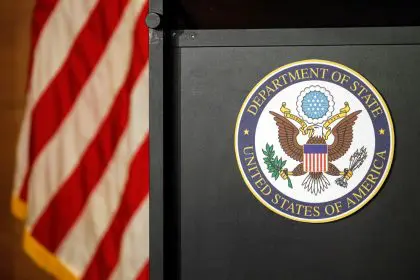For the eighth consecutive week, Target stores nationwide have experienced a measurable decline in customer foot traffic, a trend directly coinciding with the retailer’s controversial decision to scale back diversity, equity and inclusion initiatives. The ongoing consumer response reflects the growing economic impact of what began as a principled stance against corporate policy changes.
Data analysis reveals a consistent pattern of reduced store visits following Target’s January announcement dismantling several programs previously supporting Black, LGBTQ+ and other traditionally marginalized communities. The sustained decline suggests that consumer activism, particularly the organized 40-day boycott that began in March, has influenced shopping behaviors in ways that may have lasting financial implications for the retail giant.
The corporate policy pivot that sparked consumer action
Target’s dramatic shift away from DEI commitments occurred in late January, positioning the retailer among the first major corporations to publicly dismantle such programs. This strategic realignment followed the executive authority changes in Washington, with Target explicitly citing an “evolving external landscape” as motivation for the policy adjustments.
The retailer had previously established itself as a corporate leader in diversity initiatives following the 2020 national reckoning on racial justice. After George Floyd’s death, Target had committed to increasing Black employee representation by 20%, a pledge made alongside expanded programs supporting various underrepresented communities. These commitments had remained intact until the January policy reversal.
Organized resistance gains momentum through faith communities
The response from social justice advocates materialized quickly, culminating in a 40-day boycott launched in March by a coalition of faith leaders. Reverend Jamal Bryant emerged as a prominent voice in this movement, expressing particular disappointment given the significant spending power Black consumers have historically directed toward Target stores.
The boycott strategically aligned with the Lenten season, running from March 5 through April 20, and reportedly attracted more than 150,000 participants who pledged to avoid shopping at Target during this period. This organized resistance has proven remarkably effective, with Retail Brew data showing foot traffic declining 5.7% year-over-year for the week of March 17, following a 7.1% drop the previous week.
Financial impacts materialize in store traffic and stock performance
The cumulative impact of decreased store visits has created measurable financial consequences for Target. During a March 4 earnings call, executives acknowledged a 3.1% loss in the fourth quarter of the previous fiscal year and noted continuing sales declines throughout February, though they expressed optimism that Easter-related purchasing might reverse the trend.
Unfortunately for Target, foot traffic data has not shown signs of recovery, maintaining an average weekly decline of 6.2% over the eight-week period since the policy changes were announced. This persistent downturn indicates that consumer sentiments about corporate values may be influencing purchasing decisions more significantly than Target executives initially anticipated.
Stock market response compounds financial pressures
Beyond the immediate impact on store visits and sales figures, Target has experienced substantial stock market volatility seemingly connected to these events. Since announcing the DEI program reductions, Target’s stock price has dropped approximately 24%, falling from $137.40 on January 24 to $104.70 by mid-March.
The correlation between policy changes and stock performance became even more pronounced once the boycott began, with shares declining an additional 10% in the weeks that followed. While multiple market factors inevitably influence stock prices, the timing of these drops suggests investor concerns about Target’s strategy and its potential impact on consumer loyalty and spending patterns.
Tariff concerns add complexity to Target’s challenges
Compounding these consumer-driven challenges, Target now faces additional economic uncertainties related to international trade policies. The retailer must navigate proposed tariff adjustments that could significantly impact its supply chain economics and product pricing strategies.
The current administration has proposed implementing a 10% baseline tariff against all U.S. trade partners, with more substantial levies against nations that impose duties on American imports. In response, China has already implemented a retaliatory 34% levy on all goods from the United States, creating potential cost pressures throughout Target’s extensive global supply network.
The intersection of consumer values and corporate decisions
The ongoing situation at Target highlights a complex relationship between consumer expectations, corporate policy decisions and financial outcomes. The sustained nature of the foot traffic decline suggests that segments of Target’s customer base view the retailer’s DEI policy changes as more than a minor operational adjustment, they see it as a meaningful statement about corporate values that influences their shopping decisions.
For retail analysts, Target’s experience raises important questions about the economic impact of corporate decisions related to social responsibility initiatives. The data indicates that consumer activism, particularly when organized around specific timeframes and clear objectives, can produce measurable financial effects that extend beyond temporary fluctuations.
Looking ahead to potential recovery strategies
As Target navigates these challenges, industry observers speculate about potential paths forward. The retailer faces difficult decisions about whether to reconsider aspects of its policy changes or to maintain its current direction while developing alternative strategies to reconnect with dissatisfied customer segments.
The situation remains fluid, with continued monitoring of foot traffic data providing valuable indicators about whether the current trend represents a temporary response or a more permanent shift in consumer behavior. Target’s next quarterly earnings report will offer additional insights into the financial significance of these changes and may reveal adjustments to corporate strategy in response to the ongoing consumer reaction.
The extended impact of reduced store visits highlights how consumer expectations regarding corporate responsibility continue to evolve. As shoppers increasingly consider a company’s values alongside traditional factors like price and convenience, retailers face new challenges in balancing various stakeholder interests while maintaining financial performance in an increasingly competitive marketplace.














